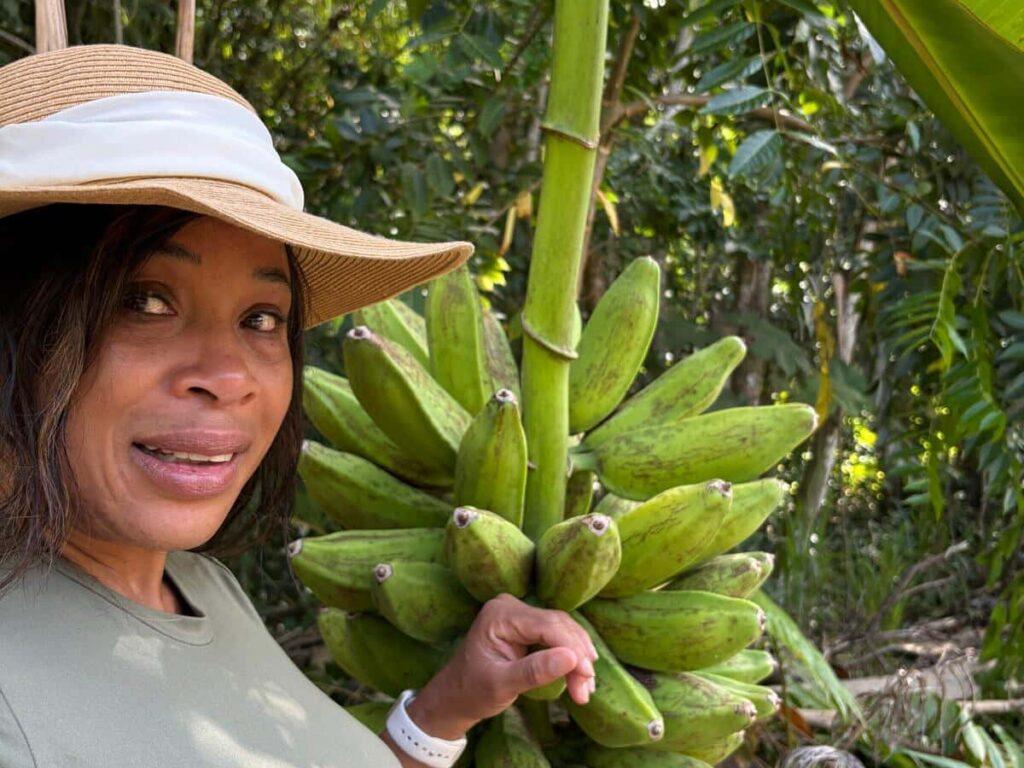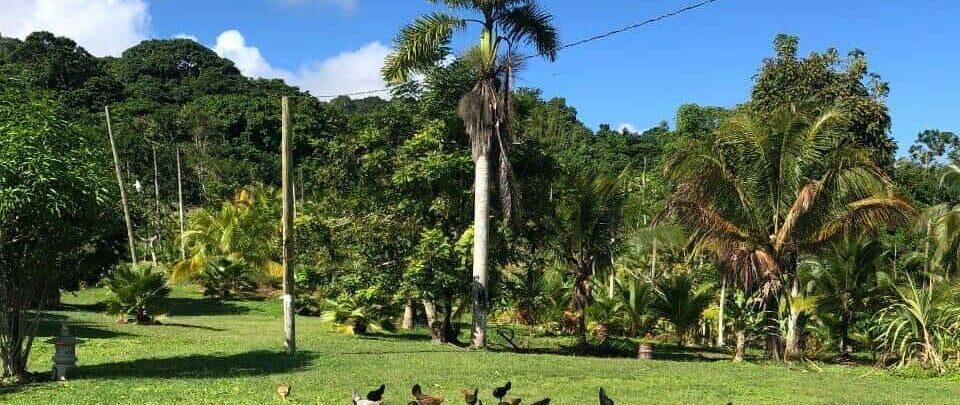How One Jamaican Farmer Is Reclaiming Her Land After Hurricane Melissa

When Category 5 Hurricane Melissa swept through Jamaica this fall, it left devastating destruction in its wake — including the nearly 300-acre Nature’s Way Organic Farm in Ramble, St. Mary. The Black-owned farm, founded and operated by RADA-certified farmer Aretha Duncan, had become a thriving agricultural hub and vital source of income and nourishment for dozens of local families.
Aretha, who was born in Jamaica and raised in Bergen County, New Jersey, spent the last decade pouring her savings, passion, and labor into transforming the land into a sustainable resource for her community. But in a matter of hours, Hurricane Melissa submerged crops, uprooted fields, destroyed pipelines, and wiped out years of painstaking investment and growth.
Despite the devastation, Aretha remains determined and hopeful. In the immediate aftermath, she opened the land to local families, urging them to take whatever produce remained so they would not go hungry. Now, as she faces the immense challenge of rebuilding, she is calling on supporters to help restore the farm — a restoration that will feed countless people across the region and provide continued employment for her 14-member staff.
Her Agenda spoke with Aretha about the storm’s impact, the community she serves, and what resilience looks like when rebuilding from the ground up.

Her Agenda: How did you begin your farming journey?
Aretha Duncan: The journey started while I was spending some time in Jamaica, and I came across a lot of hunger and the need for something sustainable, because a lot of the food imported into the country is all GMO. There are lots of pesticides, and people are not well informed about what they’re eating. I took the initiative to not only inform families but to do something about it by starting the farm and growing organically.
Her Agenda: Tell us about Nature’s Way Organic Farm
Aretha Duncan: Nature’s Way Organic Farm is located in the luscious hills of St. Mary, Jamaica. We’re about 10,000 feet above sea level. We have three natural springs at the property. So all the plants, all the vegetation are actually watered by natural spring water. And because of the altitude in which we’re located, a lot of the crops don’t need water because they’re watered by the dew.
Her Agenda:How did the hurricane impact the farm?
Aretha Duncan: It is completely devastating. I lost about 10,000 plantain trees. Now there’s a need for plantain, and it is very sustainable, very hearty food which can be turned into flour and porridge. The hurricane wiped out all the plantains, bananas, sugar cane, coconuts, even the pipelines are uprooted.

Her Agenda: In a perfect world how do you envision the farm being restored?
Aretha Duncan: With it being restored, I’m looking for people to come together. And to see the vision and to help me because I cannot do it by myself. Right now I have staff members that have to feed their family, and they’re depending on me to provide work for them. With nothing coming in and the total devastation of the farm it’s going to be a challenge.
Her Agenda: Despite the hurricane setback what motivates you and keeps you going?
Aretha Duncan: To see the benefit of the community. The children in the community, no one is going hungry. The community comes together, and we do something for the children every year; and when they come to the farm, they’re fascinated by the lake with over a few 1,000 fish in it, and turtles and migratory birds. I love to see children come to the farm, and they’re mesmerized, and you knock on a piece of ledge, and they swim to you. I just want children to have that experience and know that you can live organically and the land can sustain you, the way in which it has sustained us for generations.
Her Agenda: Can you speak about the land’s historic meaning?
Aretha Duncan: Back in the 1700s or 1800s, [there] was a rebellion in Jamaica called the Tacky Rebellion. And that is the property [on] which the rebellion took place. Tacky was a slave. And he burnt down the slave master’s house and started a rebellion. And this is the same property that I am on right now. This is where the ancestors were buried years ago. So I feel a sense of responsibility. It’s a historic site; I have to keep it preserved because our history was just lost. Now it’s in the hands of a black person, a black woman, and the little that is left, I want it to be preserved.






